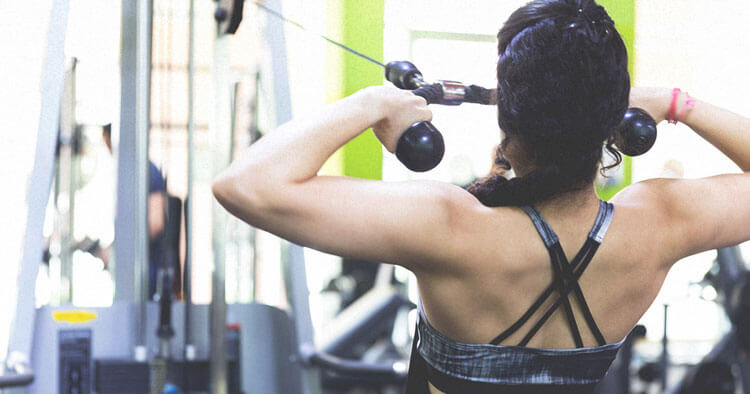Muscle Pain and Tendinopathy
Don’t Neglect Your Lower Traps
Signs You Have Weak Lower Traps
The lower traps are shoulder blade muscles that help to tip the shoulder blade backwards and downwards, helping to “stick” the shoulder blade to your rib cage. Even with simple activities like reaching into a cupboard, the lower traps will be active, contracting to help stabilise the shoulder blade. Not surprisingly with our central CBD location a very common postural complaint seen in our Sydney physio practice is the issue of rounded shoulders . Often this rounding of the shoulders we see in our practice is caused by a combination of prolonged sedentary postures due to extended hours working at a desk, coupled with an unbalanced gym routine. Namely over training of chest muscles (the so called mirror muscles), whilst neglecting the equally important back muscles, including the lower trapezius. Frequently in this situation the pec minor muscle, at the front of the chest is tight which can lead to the tipping of the shoulder blade down and forward, causing a rounded shoulder appearance and muscles like the lower trapezius not having sufficient strength to over come this pec minor tightness. In this situation the lower traps are crucial, as they pretty much work to do the opposite action to that of pec minor, counteracting this slumped forward rounding of the shoulders.
Therefore if someone has rounded shoulders, it is quite likely may could have both tight pec minor muscles and weak lower trapezius muscles. And given that winging of the scapular can in part come from having weak lower trapz the same can often be said where there is winging of the lower tip of the shoulder blade, away from the rib cage. This winging of the lower tip of the scapula may well have everything to do with lower trapezius muscle weakness and tightness of the pec minor muscles at the front. However, to suggest that all issues related to weakness of the lower trapezius are postural in natural is incorrect. Weak lower trapz are also considered to contribute to sore shoulders when performing prolonged activities with the arms above shoulder height, such as hanging out a big load of washing on the washing line and ultimately the development of some shoulder complaints including shoulder impingement.
Why Lower Traps Are Often Weak
The lower traps may be weak as a result of the body not being in its ideal postural position enabling the low trapezius muscles to engage properly. Situations creating such mechanical disadvantage, could include having a tight, or short pec minor muscle, or a kyphotic thoracic spine. This rounding of the shoulders, or curved upper back, may potentially inhibit the lower traps from engaging properly. When this occurs it can create a situation where there may be a lack of ability to initiate the muscles performance and/or facilitate lower traps muscle activation with functional tasks, ultimately impacting function of the upper limb.
Exercises For Training Your Lower Trapezius Muscles
The good new is that under active, or weak lower traps can generally be corrected. In most situations with training you can improve both the strength and functional role of the muscle in maintaining ideal scapula dynamics. Working to address any inhibiting factors, such as a tight pec minor, or a kyphotic thoracic spine is a great starting point but will most likely need to be simultaneously addressed with some form of a lower trapezius strengthening program. A couple of basic lower traps exercises that can be performed at home, or at the gym include what is referred to as the cable (or theraband) face pulls and prone scapula Y’s. If either of these exercises appear too easy, or too hard as a starting point for you, then I would suggest seeing your physiotherapist so they can assess your technique as well as offer any variations/progressions of these fantastic exercises.
Disclaimer: Sydney Physio Clinic provides this information as an educational service and is not intended to serve as medical advice. Anyone seeking specific advice or assistance on Don’t Neglect Your Lower Traps should consult his or her physiotherapist, general practitioner or appropriately skilled practitioner.


